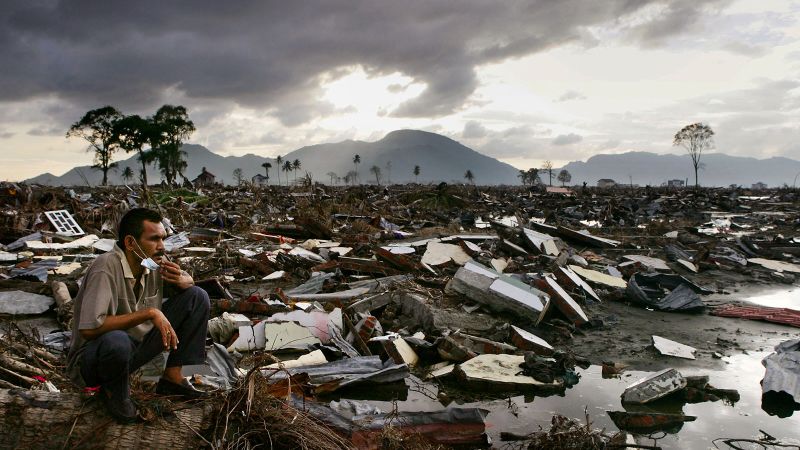Twenty years ago on December 26, a 9.1-magnitude earthquake triggered massive tsunamis across the Indian Ocean, sending waves slamming into the coasts of 14 countries with devastating power.
The 2004 Indian Ocean earthquake and tsunami was one of the deadliest disasters in modern recorded history, killing an estimated 230,000 people and affecting millions.
The initial earthquake struck off the western coast of the Indonesian island of Sumatra, on the morning of Boxing Day. Whole towns and villages were swept away as thousands of miles of coastline was destroyed in Indonesia, India, Thailand, Sri Lanka, the Maldives, Malaysia, Myanmar, the Seychelles and Somalia.
The scale of the tragedy was magnified by its sudden onslaught.
The lack of an early-warning system and minimal sea-level data left seismologists scrambling to determine the earthquake’s magnitude and exactly if – and where – the waves would hit.
Many were left without warning, and little time to escape. Others had no idea what was happening as the ocean withdrew, exposing the seafloor – a natural warning sign of a possible tsunami approaching.
Indonesia’s Aceh province, which was closest to the epicenter, was the worst hit with an estimated 130,700 people killed and 565,384 internally displaced, while 199,766 houses were destroyed or damaged.
The horror of the tsunami endures two decades later with communities that have since rebuilt and families who lost loved ones still bearing the scars.
The National Oceanic and Atmospheric Administration called the tragedy a “wake-up call” and has since ramped up investment in tsunami science and the deployment of buoys used in tsunami monitoring systems to detect seismic events quicker and more accurately.

